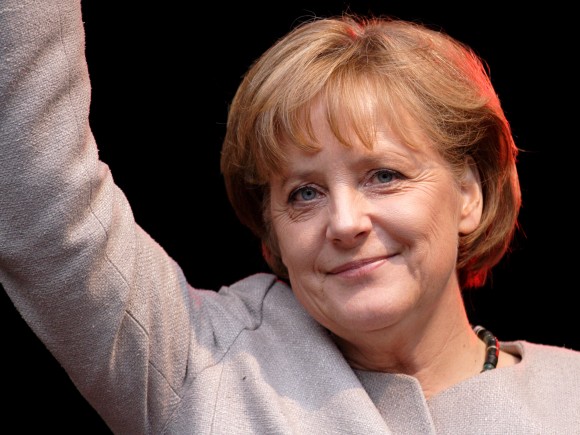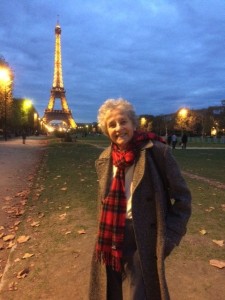
She has been the German chancellor for 13 years, longer than any of her predecessors since the creation of the country in 1949. Forbes magazine puts her #1 on the world’s list of powerful women.
The key to understanding Angela Merkel and the successful way she runs her government lies in her upbringing. She was born in 1954 in Hamburg. When she was three, her father – a Lutheran pastor – moved the family east of Berlin in order for him to head a home for mentally disabled children. Growing up in one of the most repressive countries in the world, she always feared being spied on by the East German State Security Service – commonly known as the ‘Stasi’ – and was careful not to put the life of her family in danger. No wonder the wire-tapping of her cell phone last July hit a raw nerve.
Between a distant father and the dreary atmosphere of East Germany, she found security and stimulation in hard scientific work. She obtained a doctorate in physics and wrote her thesis on quantum chemistry. She also became an excellent Russian speaker — a skill she has used in her relations with Putin. Her Polish ancestry – her mother came from Gdansk (formerly Danzig) – will undoubtedly make her close to the new president of the European council, Donald Tusk.
She is a shrewd politician, pragmatic enough to adjust to changes. She likes consensus and has accepted a coalition between her Christlich Demokratische Union (CDU – Christian Democratic Party) with the Sozialdemokratische Partei Deutschlands (SPD – Social Democratic Party). She treats politics like a science , taking a long time before reaching a decision, thus giving a comforting stability to her performance. She wants power, but hates being in the spotlight. This is why she preferred the “Merkozy” (Merkel-Sarkozy) days to being alone in dealing with the European Union.
Merkel has a difficult task to accomplish. Her obsession with the rule of balanced budgets is creating austerity, which many members of the Euro zone now reject. Her policy is increasingly being criticized by economists. Emmanuel Macron, the new French Economic Minister, and Wolfang Schäuble his German counterpart, strongly disagree with her positions and think that growth is more important than austerity. Marcel Fratzscher, professor of macro economics and finances at the university of Humboldt, also thinks that the priority is to invest in the crumbling German infrastructure.
Germany is perceived abroad, and particularly by the US, as carrying Europe financially. However, this assessment should be corrected by keeping in mind that the European Central Bank capital is made up of the contributions from the national banks. The Deutsche Bundesbank contributes 19.99 percent, Banque de France 14.1 percent, Banca d’Italia 12.3 percent and so on. The burden of the debt is shared by all the countries of the Euro zone.
On Dec. 10, 2014, Angela Merkel was reelected by an astounding 99 percent of the votes as head of the CDU, which she has led since 2000. After a 10-minute-long standing ovation, the party members proceeded to enjoy three more days of the Cologne Congress. Today, an overwhelming 64 percent of Germans would like her to run for a fourth mandate as chancellor in 2017.

About the author: Nicole Prévost Logan divides her time between Essex and Paris, spending summers in the former and winters in the latter. She writes a regular column for us from her Paris home where her topics will include politics, economy, social unrest — mostly in France — but also in other European countries. She also covers a variety of art exhibits and the performing arts in Europe. Logan is the author of ‘Forever on the Road: A Franco-American Family’s Thirty Years in the Foreign Service,’ an autobiography of her life as the wife of an overseas diplomat, who lived in 10 foreign countries on three continents. Her experiences during her foreign service life included being in Lebanon when civil war erupted, excavating a medieval city in Moscow and spending a week under house arrest in Guinea.